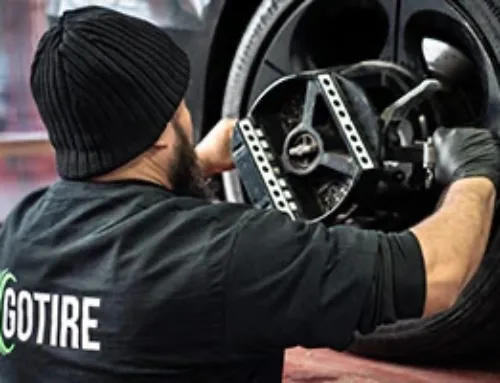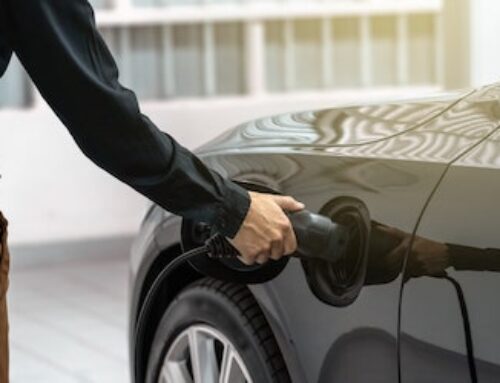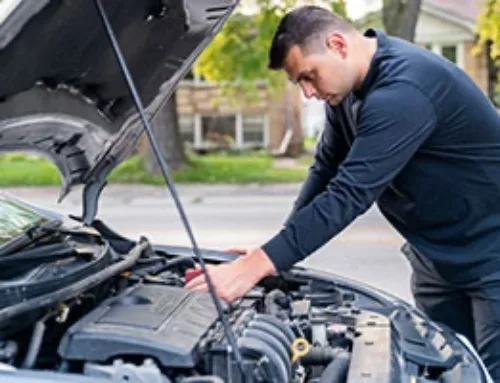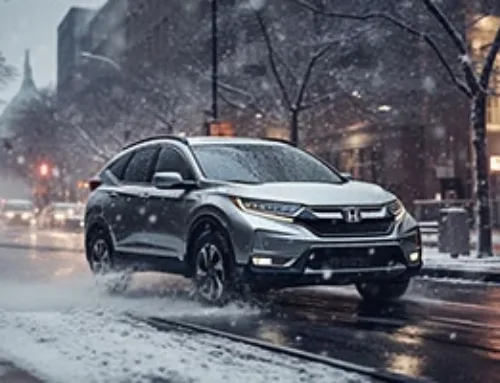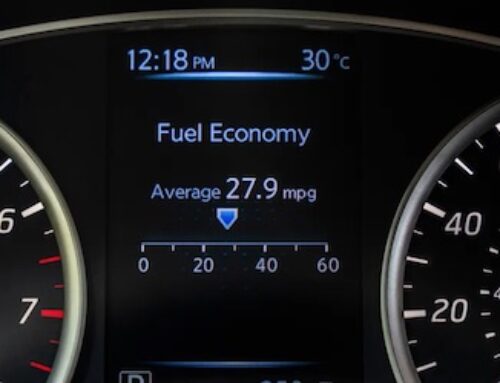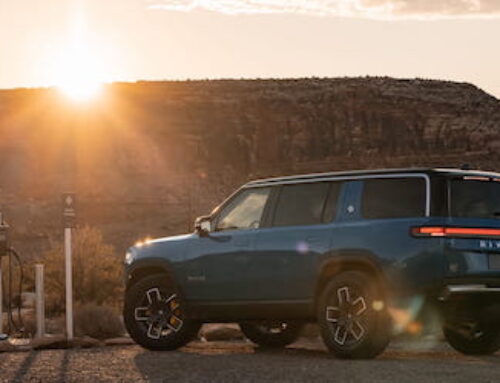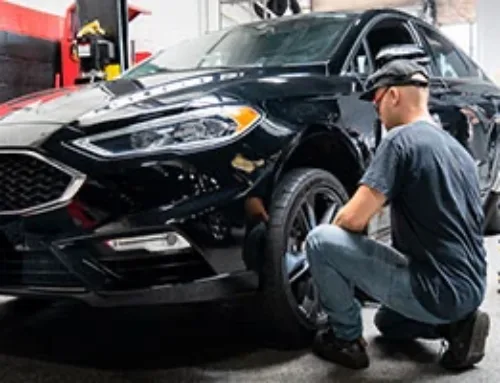Table of Contents
- It’s personal: understanding your connection to your car
- Life expectancy: Understanding the average lifespan of a car
- Warning signs: Indications it’s time for a new car
- Evolving needs: How changes in lifestyle impact your car choice
- Upgrade itch: New technology and features beckon
- Cost analysis: Repairing your car vs. new vehicle prices
- So should I get a new or used car from a car dealership?
- Frequently Asked Questions
If you’re the proud owner of a sleek classic Italian sports car or an iconic American muscle car, this might not be the article for you! Everyone else—read on. So when is it the right time to bid farewell to your trusty old ride and invest in a new set of wheels? We’ll look into all the factors, from safety to economics, and even emotional ties, that you need to consider if you’re deciding when to get a new car so that you can make a well-informed decision.
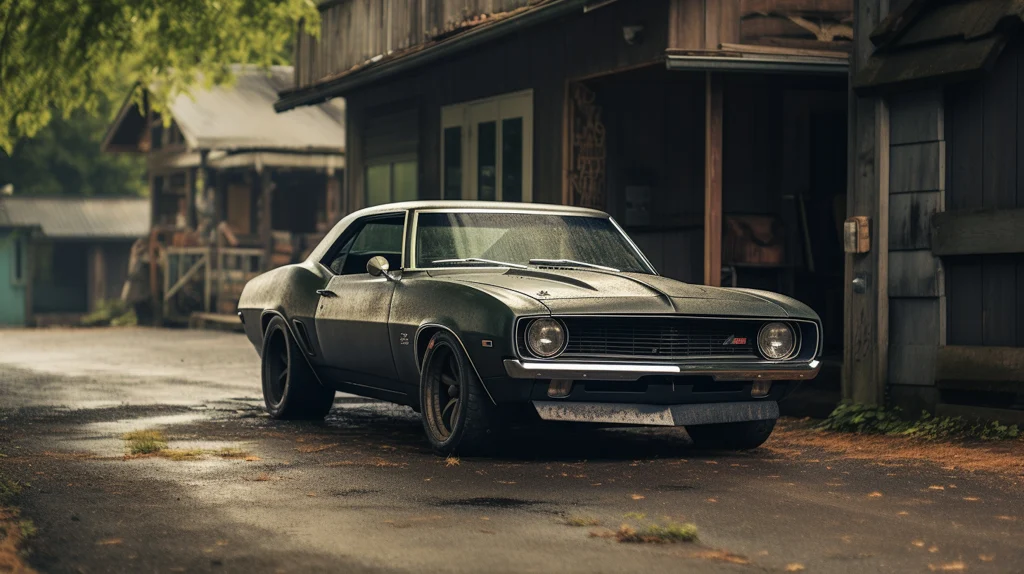
It’s personal: understanding your connection to your car
The first hurdle we come to when thinking about buying a new car is our emotional connection to our autos. The bond between a person and their car is often similar to that with a beloved pet or a favorite keepsake. It’s not just about the metal, the horsepower, or the upholstery; it’s about the memories, the experiences, and the journeys. Maybe it’s the old pickup that helped you move into your first apartment, the sedan that drove you to your first job interview, or the SUV that carried your kids to their first day of school. Or maybe you and your wife had your first kiss in your car!

Our vehicles become intertwined with significant moments in our lives, turning them into something more than a means of transportation. Acknowledging this bond is the first step in the decision-making process. It’s not uncommon for car owners to hold on to their vehicles longer than they should, purely out of sentiment. But as sweet as this bond might be, it’s crucial not to let it overshadow the practical aspects. It can be tough to say goodbye to an old friend, but sometimes, it’s necessary for the sake of safety, efficiency, and economy.
Life expectancy: Understanding the average lifespan of a car
So, how long should a car last? Let’s not set our standards by the 1769 Cugnot Steamer, which is still running well over 200 years later—the average age of a car in the US is actually around 12 years. This equates to around 150,000-200,000 miles, so most people should expect their car to last 8-15 years. But remember, these are just estimates. Some cars, especially those known for their durability and reliability, can last well beyond this if they’re well taken care of. Many things affect a car’s lifespan beyond its make and model, including maintenance, driving habits, and climate conditions. Regular maintenance is essential for making the most of a car’s lifespan.

Extending your car’s life expectancy
11 tips to help you extend the life of your car:
- Be patient during the break-in period of a new car, typically the first 1,000 miles, avoiding high RPM (above 4,500 rpm for gas vehicles and 3,500 rpm for diesel).
- Avoid heavy loads.
- Don’t allow your car to idle for too long.
- Use only light to medium acceleration when starting your engine.
- Drive carefully.
- Don’t rev your engine during start-up, especially if it’s cold outside.
- Try to avoid too many short driving trips—consolidate them into one longer trip if possible.
- Buy gas from reputable service stations.
- Go easy if your car gets stuck in mud or snow
- Choose a good insurance policy so your car will be repaired to the best possible standard in the case of an accident.
- Store your car properly if you won’t use it for more than a month.
Warning signs: Indications it’s time for a new car
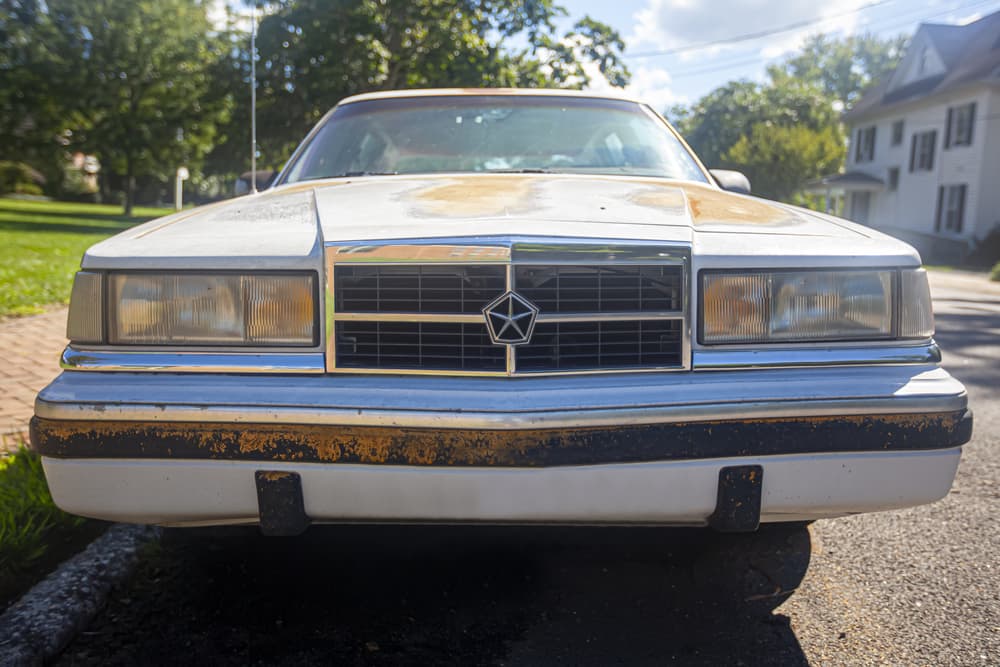
Frequent breakdowns and repairs
Unfortunately for us, cars aren’t getting more reliable over time. To reduce emissions and material consumption and to make manufacturing more environmentally friendly, many car parts are less reliable than in the past and often can’t be repaired. If you find yourself on a first-name basis with your mechanic because of frequent breakdowns, it’s a clear sign you might need a new car. A good rule of thumb is if your repairs cost more than half the value of the vehicle, it’s time to seriously consider visiting your local dealership and looking for a new vehicle.
Safety concerns
Your family’s safety should never be compromised. If you have an older car, it may have outdated safety features, or things like the airbags may start malfunctioning. If that’s the case, it’s time to consider a new car. Newer cars come equipped with advanced safety features like adaptive cruise control, blind-spot monitoring, and automatic emergency braking, which could potentially save lives.
Decreased fuel efficiency and performance
Is your car guzzling more gas than usual? Has it lost its pep? Cars tend to become less fuel efficient and lose their performance edge as they age. If you notice a significant drop in fuel economy or performance, it could be time to visit some car dealerships.
High mileage
While a well-maintained car can run smoothly even with high mileage, the risk of developing problems increases as the miles pile up. If your odometer is over 150,00, or even 200,000 miles, you might want to start car shopping.
Aesthetic deterioration
Let’s face it, a car with rust spots, a faded paint job, or a dilapidated interior isn’t a joy to drive. While aesthetics alone aren’t a reason to trade in a car, they can contribute to your desire to move on to your next car. Plus, the state of the bodywork and interior may mirror the state of some of the important mechanical parts of your vehicle.
Evolving needs: How changes in lifestyle impact your car choice

Changes in your personal or family circumstances might also trigger the need for a new car. For instance, a growing family might push you to sell your sporty two-seater and buy a bigger vehicle like an SUV or station wagon. For some people, environmental concerns might be the deciding factor in switching over to an electric or hybrid car. It’s crucial to consider how your lifestyle and needs might evolve in the near future when deciding whether to keep or replace your car.
Upgrade itch: New technology and features beckon
Last but not least, the desire for new technology and features can also be a compelling reason to get a new car. Buying a car today may come equipped with impressive technology that can make driving safer, more enjoyable, and more convenient. Features such as Apple CarPlay and Android Auto, backup cameras, lane departure warnings, electronic stability control, and semi-autonomous driving capabilities are becoming standard in many new cars.
If you’re finding yourself envious of the features in your friends’ new cars, or if you feel your car is out of step with the times, it might be a sign that you’re ready for a new set of wheels. But remember to check the monthly payments on a top-of-the-range model and make sure they fit your budget!
Cost analysis: Repairing your car vs. new vehicle prices
When it comes to a new car purchase versus keeping your old car for a few more years, there are a few financial considerations to bear in mind. The “50 percent rule” suggests that if repair costs are more than half the value of the car, it might be time to replace it. So tally up your repair costs for the year, but you can deduct standard maintenance like oil changes and tire rotations from that figure. According to the AAA, the average annual cost of car maintenance is $792.
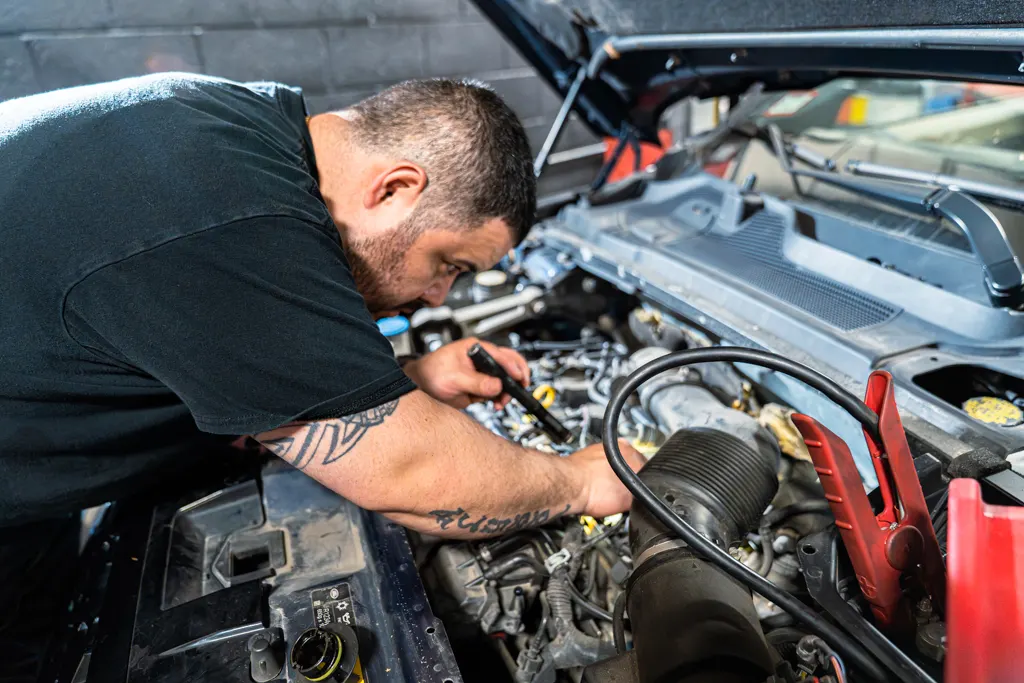
Understanding depreciation is also important, as almost all cars lose value over time (apart from a few classics). If you try to sell your old car, it won’t be worth much as it ages. But it’s also important to know that when you buy a brand-new car, it depreciates as soon as you drive it off the lot. So sometimes slightly used cars can be better deals than new cars.
You can do a simple cost analysis to help decide buying a car. Add up all your car-related costs over the previous year, including routine maintenance, repairs, and any additional costs, such as increased fuel consumption (due to poor fuel economy). Don’t forget to factor in the inconvenience and potential costs related to breakdowns, like towing charges or rental car fees.
Then, compare this to the estimated costs of owning a new car, including the monthly payments, insurance, and maintenance. Although a new car will likely have a higher upfront cost, it could save you money and headaches in the long run.
So should I get a new or used car from a car dealership?
When you start the car buying process, choosing between a new or used car depends on your budget, personal needs, and preferences. New cars come with the latest technology, safety features, and warranties, but they also depreciate quickly, with much of the value lost in the first few years. However, you can sometimes get great deals on new car payments, as dealers encourage car buyers to buy new rather than used. You’re more likely to get a fair price towards the end of the month, as many dealers will be trying to reach their monthly sales goals.
On the other hand, used cars can be a very good deal, allowing you to get a higher-end model for the same money, and the rate of depreciation is slower. However, they might not have the latest features and may require more maintenance.
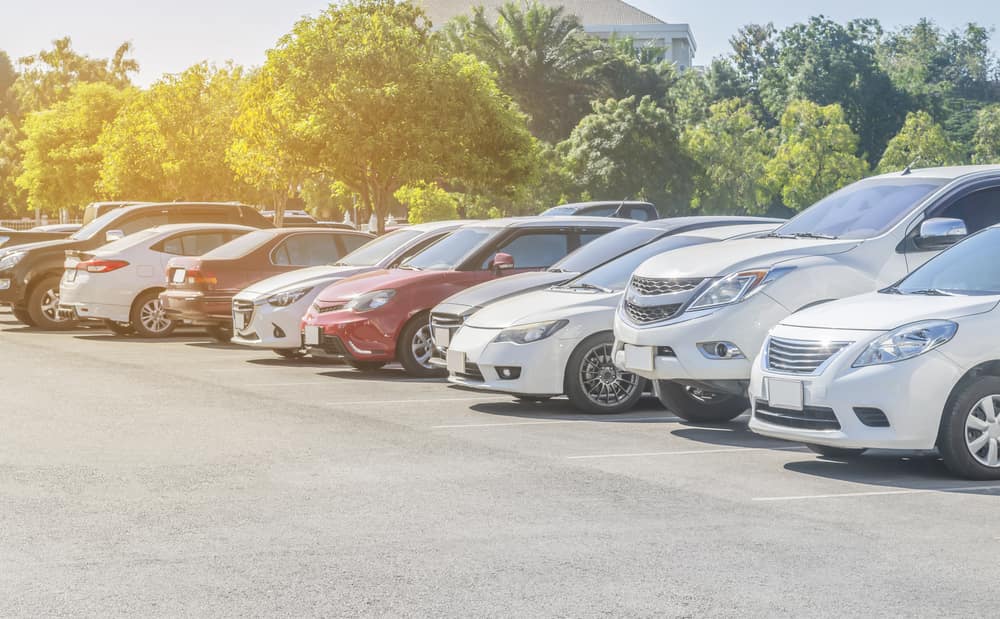
It’s also important to consider the used car’s history, including any accidents or major repairs, and give it a thorough test drive before purchasing. Consider these factors carefully and choose the option that best fits your lifestyle and budget. It could also be helpful to seek advice from a trusted mechanic or car expert before making a decision, especially with older cars.
Frequently Asked Questions
At what point do you just get a new car?
Some signs you need a new car include when your current vehicle is costing you more in repairs than it’s worth or if it’s no longer reliable or safe to drive. Similarly, if your lifestyle has changed—maybe you have a new job with a long commute or a growing family that needs more space—the answer to the question “Should I get a new car?” might be a resounding “Yes.” If you’re simply no longer satisfied with your current ride, whether because of its performance, fuel efficiency, or lack of modern features, it might be time to treat yourself to a new car. Remember, a car is a significant purchase, and you deserve one that suits your lifestyle and makes you happy without bankrupting you.
How long should you have a car before getting a new one?
Experts suggest that a well-maintained car should last you about 10 to 15 years, or around 200,000 miles, but the timeline for when you should get a new car varies greatly depending on numerous factors. When it is time to buy a new car can be influenced by how you use the vehicle, the car’s make and model, and how well you maintain it. It’s also important to consider personal factors like changes in your lifestyle, financial situation, or preferences. If your car is costing you more in repairs than it’s worth, or it no longer fits your needs or lifestyle, it may be time to consider a new one. Remember, the key is balancing the value you get from your car with the cost and potential hassle of maintenance and repairs.
When should I decide to change my car?
Deciding when to change your car depends on a variety of factors, and it can be a blend of practical considerations and personal preferences. On the practical side, if your car has high mileage, requires frequent and expensive repairs, has declining fuel efficiency, or is no longer safe or reliable, it might be time to buy a car. On the personal side, if your lifestyle or family situation has changed and your current vehicle no longer meets your needs, or if you’re just not satisfied with your car anymore, these can also be valid reasons to check out the local car sales. Ultimately, the decision to change your car should be based on what makes the most sense for you both financially and in terms of meeting your transportation needs.
Is a 10-year-old car too old?
No, in many cases, a 10-year-old car is not “too old,” but it does depend on a few factors. The most important consideration is how the car has been maintained. Well-maintained older cars can easily last 15 years or more, regardless of age. However, if a 10-year-old car has not been properly cared for, it could be overdue for some expensive repairs. The type of car, how it’s been driven, and the environment it’s been used in can also affect its condition. If you’re concerned about the age of your car, it could be a good idea to have it inspected by a trusted mechanic to assess its condition and future maintenance needs before checking out the car deals in your area.


